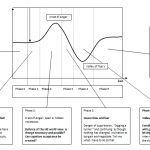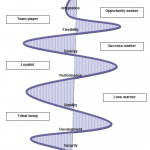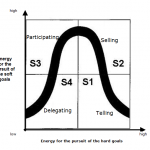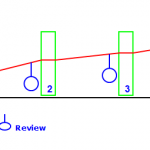Developed by Ulrich Grannemann Fair process in change processes Justice and change management have a certain similarity. Acceptance of the result (or judgement) doesn’t only depend on the justice of it, but also on the way in which the result was reached: It depends on “fair process”. Kim and Mauborgne (2005) describe three main […]
Category Archives: Führungspersönlichkeit
reorganisation and co
Reorganisation and Co.. Changes – Now what? The significance of reorganisation and an example of a support format Alongside personality and family, work has existential significance. Massive turning points and disruptions in the workplace can sometimes lead to damage to a person’s satisfaction and fundamental motivation which is very difficult to repair. They can cause […]
Vom Wesen des Erfolges
Der Weg zum Misserfolg ist mit vielen Erfolgen gepflastert. Ein Blick auf Erfolg und Misserfolg.
Vier Phasen des Lernens
Lernen ist das einzige Universum, das uns allen wirklich offen steht. Lernen beginnt mit der bewussten Inkompetenz oder dem Suchen nach Modellen.
graves spiral dynamics
Name Meme (doctrine) Metaphor Popular names Fundamental motive Thinking Structures Process 8 Globalist Holistic Colour of the ocean, seeing the earth from space Global view Attention on the whole world dynamic, actions on a macro level holistic global flowing / ecological 7 Opportunity-seeker Integrative Solar energy, alternative technologies Flexible […]
situational leadership
Leadership Style area Leadership means influencing others to achieve objectives. The choice of the most adecuate leadership style to apply depends on The actual situation The individual qualification and state of readiness of the followers (see next table). Which is the adecuate leadership style for the state of readiness? State of readiness Adecuate […]
interim-talk or 4-point-review
Interim talk or 4-Point-Review How can we close the gap between the annual Performance Review and the more reactive daily leadership business? How can we specify the complex and often intangible leadership job so that it can be specified and broken down easier? How can I find out and report as a supervisor whether […]
Sind Fähigkeiten gegeben oder erworben?
Sind Fähigkeiten gegeben oder erworben?
Kleine Ursache – große Wirkungen.
Kleiner Unterschied mit großen Auswirkungen. Die Psychologie-Professorin Dr. Dweck aus Stanford sieht in der individuellen Grundannahme, woher die eigenen Fähigkeiten kommen, den entscheidenden Unterschied in der gesamten Lebenswahrnehmung und Lebensgestaltung.






